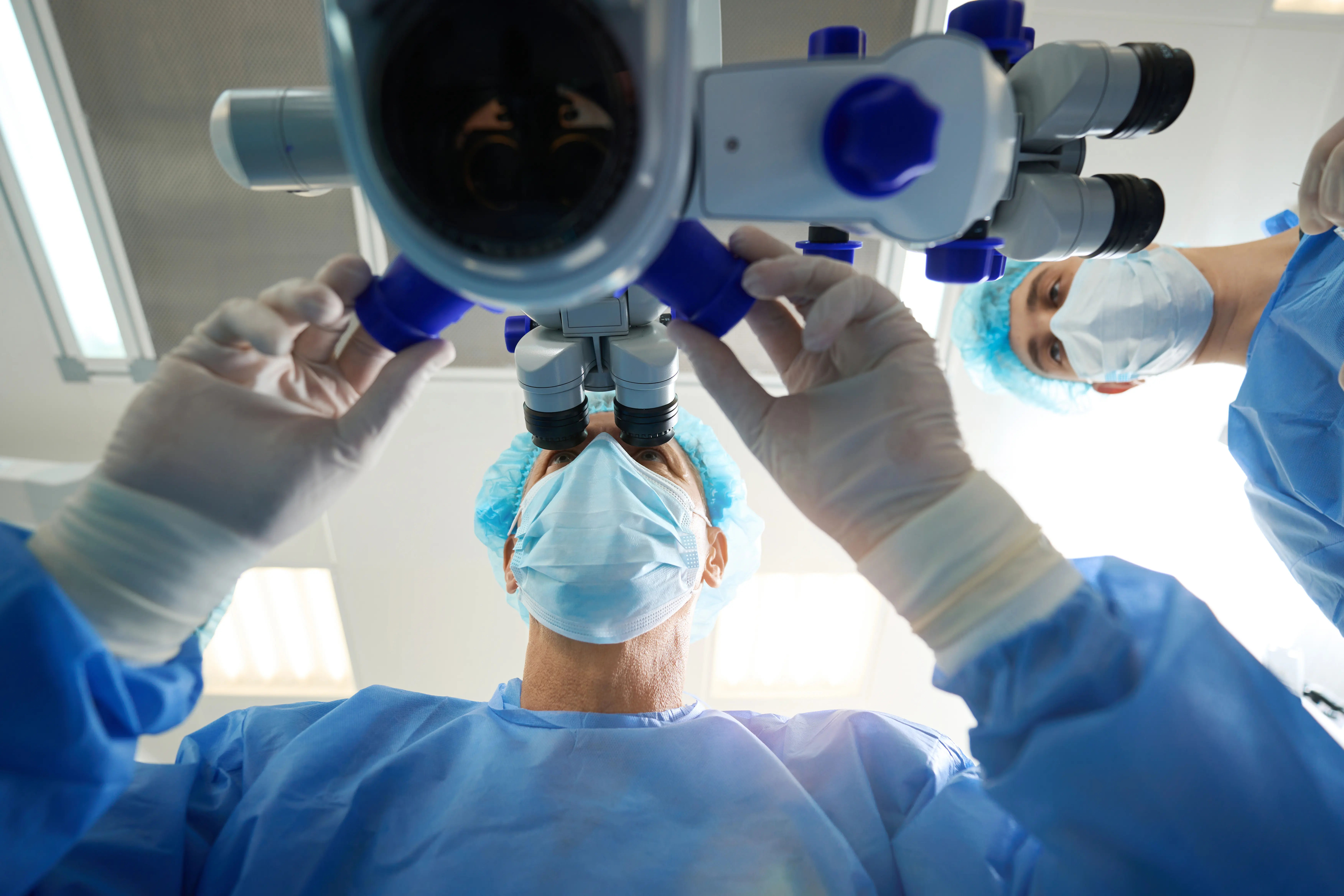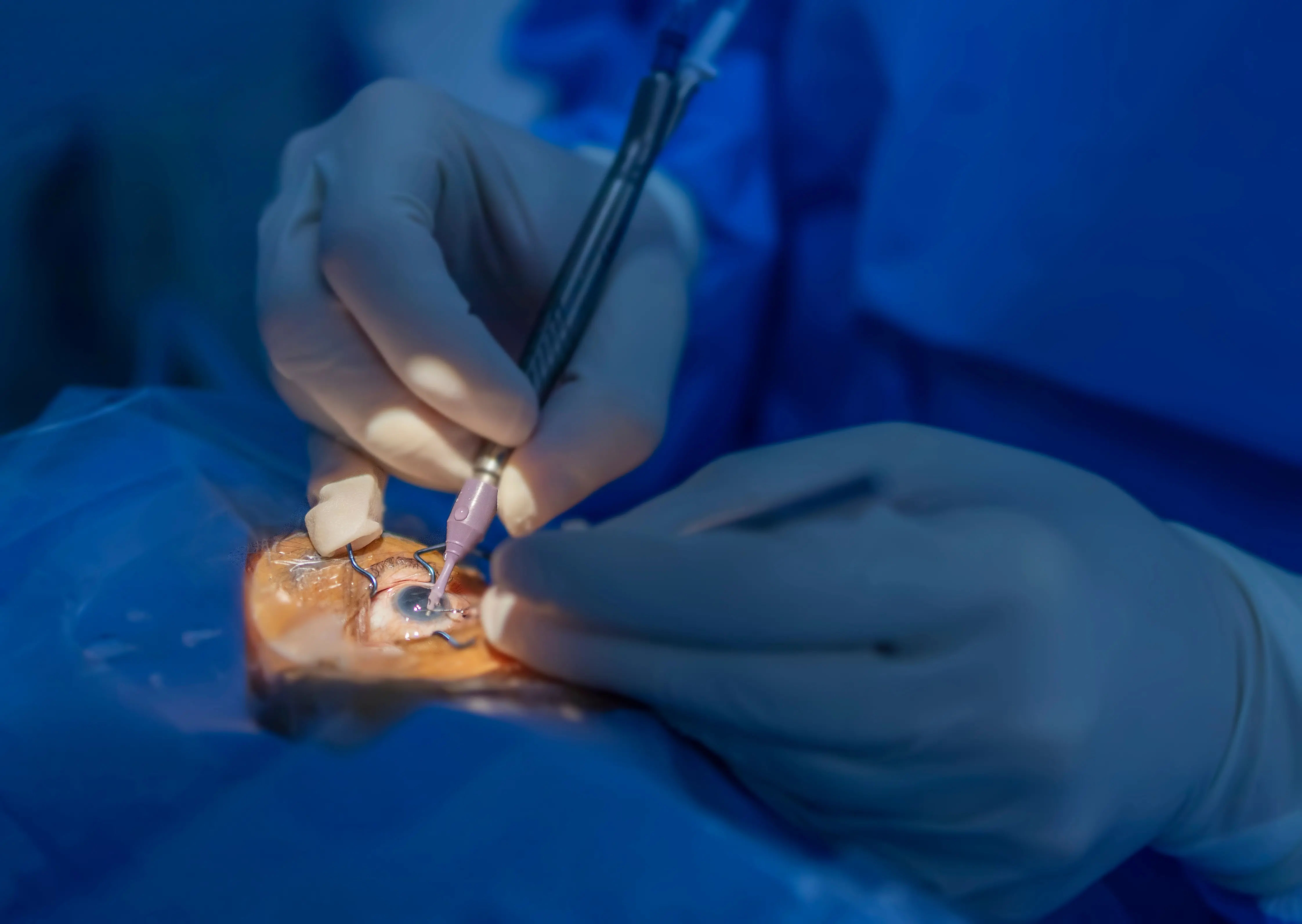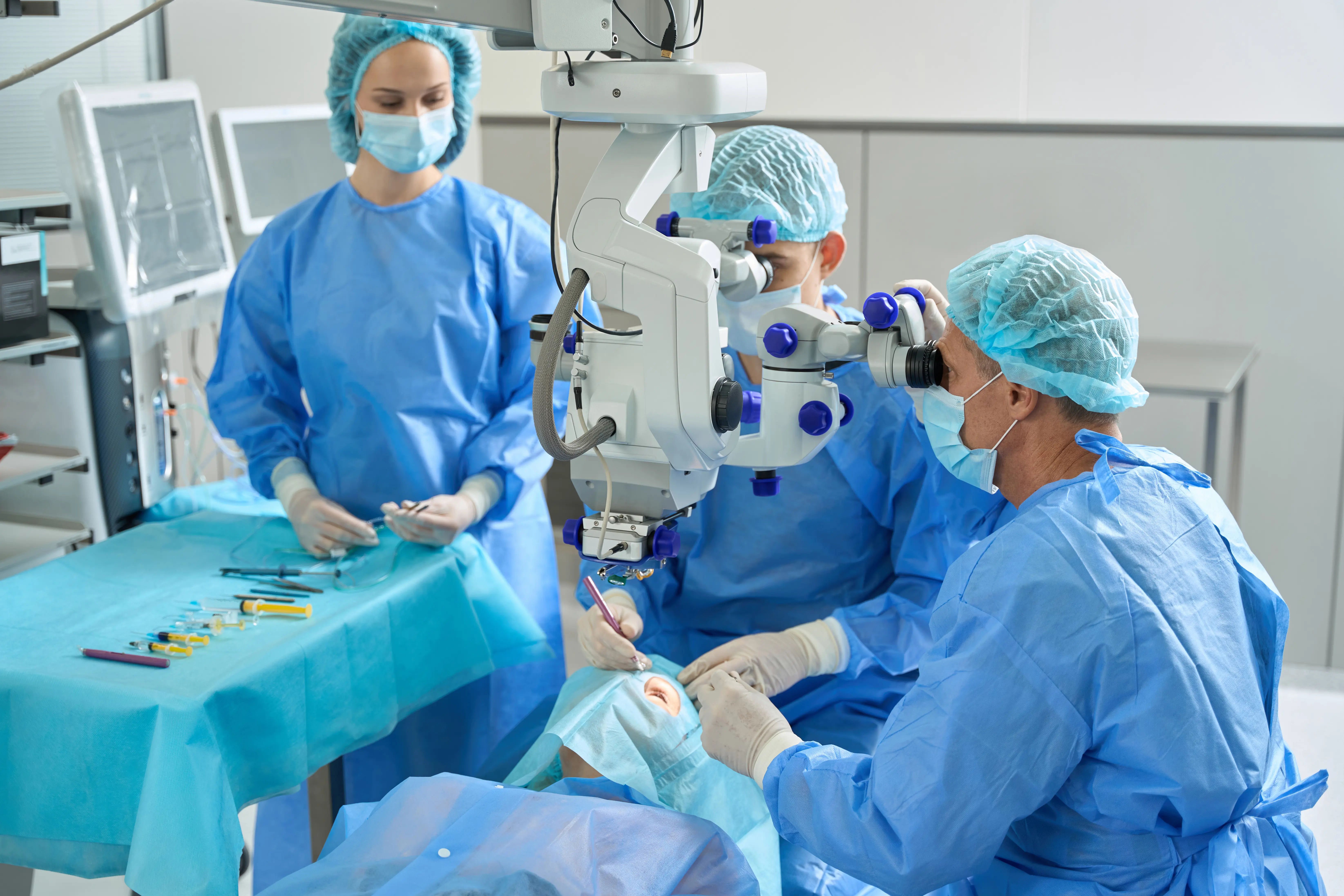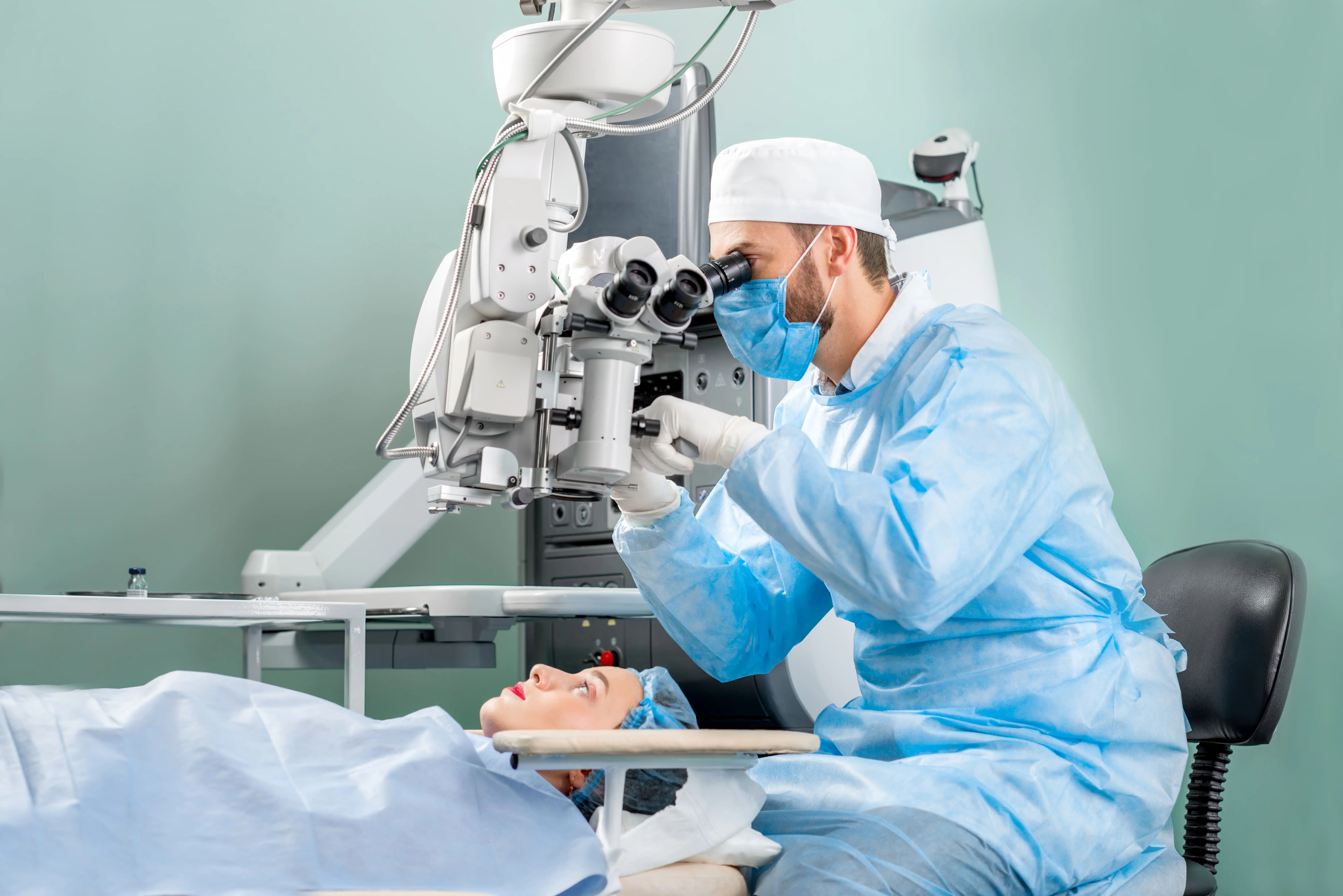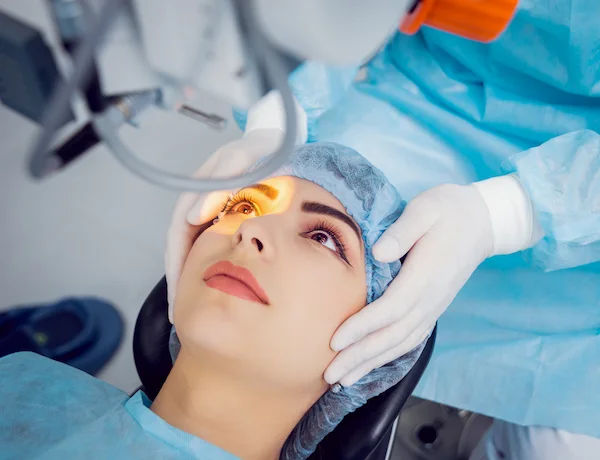After Cataract Surgery Pain In Eye
Experiencing eye pain after cataract surgery can be concerning. Learn about common causes, when pain is normal, and signs that require immediate medical attention to ensure proper healing.

Written by
Last updated on 13th Jan, 2026

Introduction
Cataract surgery is a common and generally safe procedure that helps restore clear vision by removing the cloudy lens of the eye and replacing it with an artificial one. While the surgery is highly successful, some patients may experience mild discomfort or pain afterward. If you’ve recently undergone cataract surgery and are experiencing eye pain, it’s natural to feel concerned. This article will help you understand why this happens, what’s normal, and when to seek medical attention.
Is Pain After Cataract Surgery Normal?
Mild discomfort, itching, or a gritty sensation in the eye is common in the first few days after cataract surgery. However, severe or persistent pain is not normal and should be evaluated by a doctor.
Common Causes of Post-Surgery Pain
1. Normal Healing Process: Your eye may feel sore or irritated as it heals.
2. Dry Eyes: Reduced tear production after surgery can cause discomfort.
3. Inflammation: The eye may become slightly inflamed, leading to mild pain.
4. Increased Eye Pressure: Some patients experience temporary pressure changes.
5. Infection (Rare but Serious): Severe pain, redness, or vision loss could indicate an infection.
To Know More Consult Top Ophthalmologists
When Should You Worry?
While mild discomfort is expected, contact your doctor immediately if you experience:
Severe or worsening pain
Sudden vision loss
Increased redness or swelling
Pus or excessive discharge
Flashes of light or new floaters
These could be signs of complications like infection, retinal detachment, or increased eye pressure.
Tips to Manage Discomfort After Cataract Surgery
Here are some ways to ease pain and promote healing:
1. Follow Your Doctor’s Instructions
Use prescribed eye drops (antibiotic and anti-inflammatory) as directed.
Avoid rubbing or pressing on your eye.
2. Protect Your Eye
Wear the protective shield (especially while sleeping) to prevent accidental rubbing.
Avoid dusty or smoky environments.
3. Keep Your Eye Moist
Use artificial tears (if recommended) to relieve dryness.
Stay hydrated by drinking plenty of water.
4. Rest Your Eyes
Avoid straining your eyes with screens (phone, TV, computer) for the first few days.
Take short naps to help your eye heal.
5. Avoid Strenuous Activities
Skip heavy lifting, bending over, or vigorous exercise for at least a week.
When Will the Pain Go Away?
Most patients feel better within 24-48 hours, and any mild discomfort should subside within a week. Full recovery usually takes 4-6 weeks, but your vision will improve gradually.
When to Consult a Doctor?
If your pain persists beyond a few days or worsens, it’s best to consult an eye specialist. Apollo24|7 offers easy online consultations with experienced ophthalmologists who can guide you through recovery or recommend further treatment if needed.
If you’re experiencing unusual pain or vision changes after cataract surgery, don’t wait. Schedule a consultation with an expert at Apollo 24|7 to ensure a smooth recovery.
Conclusion
Mild discomfort after cataract surgery is normal, but severe pain is not. By following your doctor’s advice and taking care of your eye, you can ensure a smooth recovery. If you have any concerns, don’t hesitate to seek medical help—your vision is precious!
Would you like to speak to an eye specialist today?
Consult Top Ophthalmologists
To Know More Consult Top Ophthalmologists
Dr. Padmini S
Ophthalmologist
4 Years • MBBS,MS
Bengaluru
Apollo Medical Center, Marathahalli, Bengaluru

Dr Deepti Govila
Ophthalmologist
26 Years • MBBS, MS Ophthalmology
Delhi
Apollo Hospitals Indraprastha, Delhi

Dr. Karan Paswan
Ophthalmologist
7 Years • MBBS,MS (Ophthalmology)
Kolkata
VDC Clinic, Kolkata

Dr. C K Deepa
Ophthalmologist
16 Years • MBBS, MS (Ophthalmology), FAEH (IOL & Anterior Segment). Senior Consultant - Ophthalmology
Bhubaneswar
Apollo Hospitals Old Sainik School Road, Bhubaneswar
(150+ Patients)

Dr Monica Gour
Ophthalmologist
9 Years • MS(Ophthalmology) Fellowship in Cornea
Lucknow
Apollomedics Super Speciality Hospital, Lucknow
Consult Top Ophthalmologists
Dr. Padmini S
Ophthalmologist
4 Years • MBBS,MS
Bengaluru
Apollo Medical Center, Marathahalli, Bengaluru

Dr Deepti Govila
Ophthalmologist
26 Years • MBBS, MS Ophthalmology
Delhi
Apollo Hospitals Indraprastha, Delhi

Dr. Karan Paswan
Ophthalmologist
7 Years • MBBS,MS (Ophthalmology)
Kolkata
VDC Clinic, Kolkata

Dr. C K Deepa
Ophthalmologist
16 Years • MBBS, MS (Ophthalmology), FAEH (IOL & Anterior Segment). Senior Consultant - Ophthalmology
Bhubaneswar
Apollo Hospitals Old Sainik School Road, Bhubaneswar
(150+ Patients)

Dr Monica Gour
Ophthalmologist
9 Years • MS(Ophthalmology) Fellowship in Cornea
Lucknow
Apollomedics Super Speciality Hospital, Lucknow
